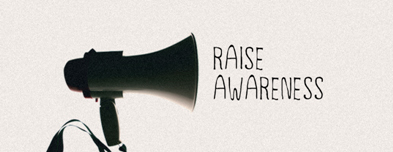What’s the Best Way to Raise Awareness?
Medical Pharmaceutical Translations • Apr 14, 2014 12:00:00 AM

April is, among other things, IBS Awareness Month. I have to admit, as a longtime sufferer of this disease, it was with a bit of curiosity, and even some pride, that I looked online for my community’s announcement of this important event. With up to 23% of the world’s population afflicted by it, I figured we had a large talent pool to draw from. Surely someone had come up with a clever, memorable, and/or incredibly touching YouTube video or something. But actually, IBS Awareness is pretty lackluster – no viral campaigns, and an official video that’s almost laughably dull.
You could say it’s all right – after all, while many people have IBS, most remain functional and some are even able to beat it. There are far more serious and frightening conditions out there. Then again, as someone who has had parts of her life severely impacted by IBS, I do think it’s important to educate people.
It’s pretty easy to understand why awareness campaigns are important. Fortunately, many aren’t as “meh” as the IBS one is. For example, with its iconic pink ribbon, smart advertising, and tie-in products, breast cancer is known for having an incredibly effective awareness campaign. Due to the general public’s increased knowledge of this condition, lives have been saved and millions of dollars have been raised for research.
But just because a disease’s awareness campaign is a success doesn’t mean there aren’t side effects. For one thing, some experts believe that breast cancer has become so familiar to us that many women are getting mammograms and treatment unnecessarily.
Recently, another awareness campaign issue has caught the public’s attention. A few weeks ago, UK organization Pancreatic Cancer Action launched a campaign featuring people diagnosed with pancreatic cancer, including a beautiful woman with tumors on her bald head, saying “I wish I had breast cancer” (or testicular cancer for the men). The idea is that, while diseases like breast cancer have become so familiar that many of us know how to check ourselves or get checked, and while so many donations have been acquired that research for the disease has led to a number of treatment options, other conditions, like pancreatic cancer, are overshadowed. The hard facts are compelling: the survival rate for breast cancer is about 85%, while for pancreatic cancer it’s a bleak 3%.
The ad has caused immense controversy. Patients, survivors, and loved ones of those with other forms of cancer took to the web to express how offended they felt. Some, including author and stage 4 melanoma survivor Mary Elizabeth Williams, pointed out that there shouldn’t be comparisons – all cancer is horrible.
While I agree that it’s not the most diplomatic route to take, I do understand the need for a little controversy. In fact, studies have shown that a negative or shock element is what makes awareness campaigns successful. And as writer Mary McCoy, who’s worked in a cancer ward, asserts, even if it might not be in the best taste, such a shock may be necessary, especially in a case like this. Getting people’s attention can also make them get informed, which could lead them to see a doctor if they’re concerned about symptoms. With raised awareness may also come increased donations that could lead to desperately-needed research and treatment options.
In the end, no matter how an awareness campaign is handled, it’s important to remember that it’s these illnesses that we’re fighting against, not each other. But there is also another enemy: human nature. It’s a shame that shock and surprise might be the only way to get people’s attention about something life-threatening. And that, I think, is something we can all agree on.
#aiatranslations #diseaseawareness #patienteducation #translation
